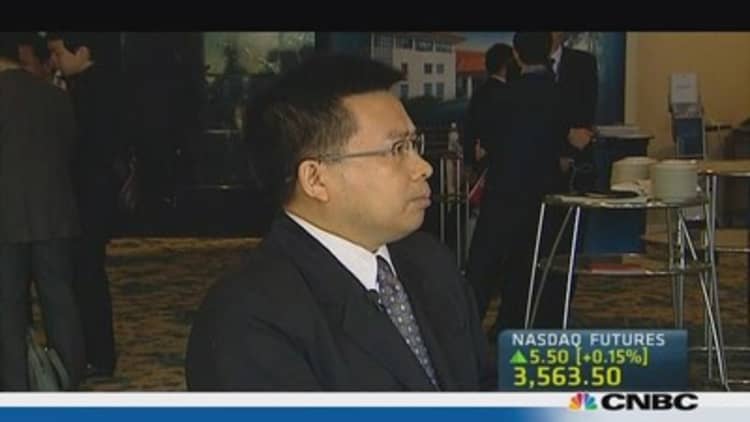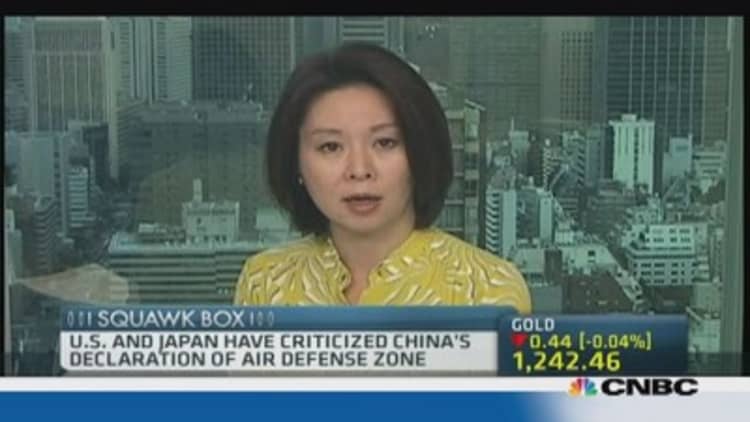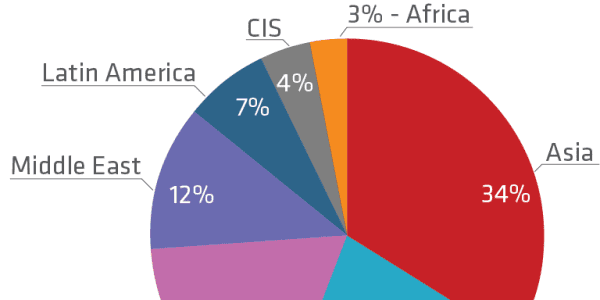
A "pivot" or emphasis on Asia in U.S. foreign policy is not about containing China, although more could be done to spell out what the strategy means, speakers at an Asia-Pacific Security Conference in Singapore said on Monday.
Diplomatic relations in Asia are at a delicate point: China is asserting its claims in the South China Sea, alarming regional neighbors who hope that the U.S., the world's remaining superpower, will provide some balance in the region.
(Read more: Singapore Airshow 2014: A CNBC Special Report)
"Last year, [U.S. Secretary of Defense] Chuck Hagel said the pivot is misread, that it's not all about China and I agree with that," Ruan Zongze, vice president at the China Institute of International Studies (CIIS) said during a panel discussion on Sino-American strategies, part of the events for this week's Singapore Airshow.
"But when I talk to people about this they say it [the pivot] is all about the rise of China," he added.
According to Andrew Shapiro, a former U.S. assistant secretary of state for political-military affairs, U.S. policy in Asia is not about 'containing' China's power.
"Every announcement [on the pivot] is not about China, this is not a new Cold War," Shapiro, the managing director of Beacon Global Strategies, said. "The U.S. acknowledges that China is growing and that it has interests in the region."
(Read more: Why investors should watch out for Japan-China relations)
China has grown rapidly over the past three decades to become the world's number two economy after the U.S. While this makes it a key trading partner for many countries in Asia, the rise of China has also fueled concerns about the balance of power in Asia.
China declared an air defense zone in the East China Sea last November covering territory claimed by China, Japan, Taiwan and South Korea. It has also implemented new fishing restrictions in the South China Sea since the start of the year, upsetting its neighbors.
The country is also a big spender when it comes to defense and according to IHS, China is projected to outspend the U.K., France and Germany combined by 2015.

"There are concerns about China's territorial claims in the South China Seas. The U.S. has made clear that we are not taking sides. What we need is a rules-based system for disputes," Shapiro added.
The Asia pivot has been presented as a rebalancing of U.S. priorities as the U.S. withdraws from Afghanistan and Iraq, analysts say.
"The U.S. could do better to explain what the pivot means," said Richard Bitzinger, a senior fellow at the S. Rajaratnam School of International Studies.
Japan's role
Japan's relations with the U.S. add another dimension to how Sino-U.S. relations develop going forward, the panelists said.
(Read more: Timeline of latest flare-up in China-Japan relations)
Relations between China and Japan, Asia's two biggest economies, are at a low point amid a territorial dispute in the East China Sea and following a visit by Japan's Prime Minister Shinzo Abe in December to the Yasukuni war shrine in Tokyo that honors Japan's war dead, including some convicted war criminals.
"Japan's revisionist moves a pose a challenge to peace and stability in the region," said Zongze at the CIIS.
According to Shapiro, "The U.S.-Japan relationship is a cornerstone of U.S. security interests in Asia and will continue to be so."
But he added: "From the U.S., we would urge Japan to be a good partner and to take into account how their actions might be interpreted by their neighbors."
— By CNBC.Com's Dhara Ranasinghe; Follow her on Twitter @DharaCNBC





